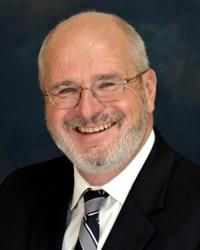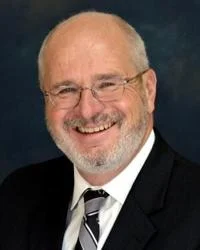Senator Mike Braun, Senator Kevin Cramer, Senator Dan Sullivan, Senator Rick Scott, and Senator Marco Rubio sent a letter to the Senate Conference Committee members appointed to reach an agreement related to H.R. 4521, the United States Innovation and Competition Act, outlining their concerns with provisions in the bill that would strip away tools for competing with China, and proposing changes to incentivize domestic investment.
“We write to reiterate that the economic competition with China is the single most important geo-political issue facing the United States,â€Â the Senators note in their letter. “We remain deeply concerned that several provisions germane to the conference would substantially weaken the ability of the United States to combat malicious Chinese economic influence.â€
The Senators’ primary concern is Section 73001 of the Senate-passed USICA bill. Section 73001 “amends the Trade Act of 1974 to create a rigid exclusion process under Section 301 which we fear would eliminate it as a tool to combat unfair and malicious Chinese trade practices.â€
The Senators note that President Trump relied on Section 301 to exert economic pressure on the Chinese Communist Party, arguing:
“Section 73001, if passed, would neuter these authorities by creating a statutory exclusion process so broad that USTR would be incapable of implementing an effective strategy. The provision requires USTR to conduct a detailed analysis of each exclusion request and, for exclusions that it intends to deny, requires USTR to demonstrate both that the tariffs do not impact the internal finances of a business unit, and do not create an anticompetitive market structure. This burden is nearly impossible for USTR to meet. Any request for which USTR cannot analyze in 90-days, or provide for a 120-day extension, would be automatically granted.â€
Under this provision, Washington lobbyists and special interests could nearly guarantee an exclusion for any client by overwhelming USTR with exclusion requests, rendering it impossible for the agency to conduct a thorough review within the 90-day window.
Other provisions the senators note their concern with include a forced labor provision that may in fact complicate enforcement of the U.S.’s existing ban on imported goods produced with forced labor.
In addition to these concerns, the letter endorses four provisions in the House-passed version of USICA, including:
- Leveling the Playing Field 2.0,
- Sec. 104001. National Critical Capabilities Reviews,
- Section 103002: Additional Exceptions to De-Minimis Treatment,
- Sec. 106002. Limitation on Duty Suspensions or Reductions for Finished Goods.
Â
The Senators conclude:
“In order to best represent American workers from the dire economic threat of malicious CCP influence, we respectfully request you support these recommended changes in the conferenced bill.â€
Read the full letter here or below.
 —
July 5, 2022
Dear Senate Conferees:
We write to reiterate that the economic competition with China is the single most important geo-political issue facing the United States. As members of the conference committee, you have been appointed to reach an agreement on legislation purported to enhance our nation’s strategic position in this competition. We remain deeply concerned that several provisions germane to the conference would substantially weaken the ability of the United States to combat malicious Chinese economic influence. We write to note this concern with a conferenced agreement that weakens American economic position with respect to China and does not provide new enforcement tools to improve that position.
Most critically, Section 73001 of the Senate-passed United States Innovation and Competition Act amends the Trade Act of 1974[1] to create a rigid exclusion process under Section 301 which we fear would eliminate it as a tool to combat unfair and malicious Chinese trade practices. As you know, President Trump relied on Section 301 to exert economic pressure on the Chinese Communist Party (CCP). His actions followed an eight-month investigation by the Office of the U.S. Trade Representative (USTR), which determined that the CCP has been engaging in certain economic practices to the detriment of the United States. The President imposed tariffs following the investigation to exert economic pressure on the CCP.
Section 73001, if passed, would neuter these authorities by creating a statutory exclusion process so broad that USTR would be incapable of implementing an effective strategy. The provision requires USTR to conduct a detailed analysis of each exclusion request and, for exclusions that it intends to deny, requires USTR to demonstrate both that the tariffs do not impact the internal finances of a business unit, and do not create an anticompetitive market structure. This burden is nearly impossible for USTR to meet. Any request for which USTR cannot analyze in 90-days, or provide for a 120-day extension, would be automatically granted.
This provision would be a boon to Washington lobbyists and special interests who could nearly guarantee an exclusion for any client by so overwhelming USTR with exclusion requests, that it would be impossible for the agency to conduct a thorough review within the 90-day statutory window.
This is why in April, USTR took the unusual step of warning Members about the effects of this provision. As you know, USTR commented that Section 73001 “would reduce the leverage needed to encourage China to change its practices involving the theft of U.S. technology, and would support China’s goal of obtaining a reduction in the tariffs.[2]â€
Unfortunately, in our view, the net effect of Section 73001 would be to render Section 301 as a useless tool by drowning it in a complicated, unrealistic, and overly generous exclusion process, eliminating the ability for a President to implement effective pressure on the CCP.
However, there are other provisions which are misguided.
Section 71001 for example calls for a new investigative unit within the Executive Branch to investigate allegations of forced labor. While we agree there is zero tolerance for forced labor in our supply chains, U.S. law already prohibits imports of goods produced with forced labor. Section 71001 could complicate the implementation of the existing ban on imports produced with forced labor. In December 2021, the Senate unanimously passed the Uyghur Forced Labor Prevention Act.[3] The conferenced agreement must not undermine that bipartisan law.
Section 73003 is also concerning as it establishes an Inspector General (IG) within USTR. While at face, an IG often helps ensure transparency in governmental operations. In this case, the creation of a USTR IG is designed to complicate USTR’s ability to execute the instructions of the President with respect to increasing economic pressure on geopolitical competitors. USTR is an agency within the Executive Office of the President (EOP) at the White House. No other EOP Office is overseen by an IG. Further, it is unclear what additional benefit would be produced by a USTR IG. USTR’s internal decision-making was already reviewed extensively by a U.S. Government Accountability Office review, which provided a set of recommendations to the agency about how to better implement its existing exclusion process.[4] In this case, an IG would be at best duplicative, but more likely would stifle a President’s efforts to impose tough economic costs on the CCP.
Â
In addition, as the committee negotiates this agreement, there are a number of provisions in the House bill, consistent with the stated purpose of the bill, which we believe would be a substantial improvement over current law.
Leveling the Playing Field 2.0:
Â
Title II of the House bill contains several improvements to U.S. trade remedy laws which would help domestic manufacturers compete against unfair trade practices, especially those perpetuated by China, including subsidies provided by the Belt and Road Initiative. The bill gives the U.S. International Trade Commission authorities to combat transshipment and duty evasion in circumstances where it has already determined that unfair foreign trade is injuring U.S. firms. It also creates faster timelines to ensure that American workers can gain relief before their jobs are lost. These provisions will help ensure that American workers are not powerless against state-sponsored Chinese firms abusing international norms to unfairly compete. Moreover, the Senate’s standalone companion legislation to these provisions enjoys unprecedented Republican support making these provisions ripe for bipartisan consensus.
Section 103002: Additional Exceptions to De-Minimis Treatment:
Â
While originally designed as a mechanism to streamline the importation of low-value, or generally non-commercial goods, in recent years, de-minimis has become a loophole for foreign businesses attempting to avoid U.S. trade laws. A recent Wall Street Journal investigation found that as U.S. policy has cracked-down on unfair trade, the known value of de minimis imports have soared by more than 160,000 percent from an estimated $40 million in 2012 to over $67 billion in 2020. Today, the WSJ found, “more than a tenth of Chinese imports by value now arrive as de minimis shipments.â€[5] This provision is a needed response as it denies de-minimis eligibility for goods from countries that are both Non-Market Economies as well as on USTR’s Special 301 Priority Watch List, which identifies the worst offenders of U.S. intellectual property rights.
Sec. 104001. National Critical Capabilities Reviews:
Â
The House bill includes the National Critical Capabilities Defense Act (Division K, Title IV), a bipartisan measure to create a whole-of-government screening process for outbound investments. This added capability would fill a regulatory gap that is critical to America’s ability to strategically compete against the CCP. The CCP has a well-documented strategy of using legal and illegal practices to acquire critical capacities and technologies from American firms it needs to achieve its own strategic goals—which includes displacing U.S. companies in critical industries. While we encourage the conference committee to improve the text of Title IV, we strongly support additional tools to protect national security vulnerabilities related to the offshoring of critical capacities and American supply chains.
Sec. 106002. Limitation on Duty Suspensions or Reductions for Finished Goods:
Â
Congress greatly improved the transparency of the Miscellaneous Tariff Bill (MTB) process with the 2016 American Manufacturing Competitiveness Act. MTBs are an important tool for American producers, as they help identify circumstances in the tariff schedule where there is a need for a manufacturing input with no domestic production. However, as the use of MTBs has grown, importers have discovered that despite the intent of the statute, they can use it to obtain tariff reductions for wholly-finished goods, placing American workers at a disadvantage. This section of the House bill provides a critical technical correction to ensure that finished Chinese goods cannot be imported duty free through the MTB process.
Â
We believe that these changes, along with additional provisions that appropriately incentivize domestic investment in specific areas, can make crucial contributions to our competitiveness with China. However, given other provisions germane to the conference, we are also incredibly concerned that the resulting bill could strip the few critical tools available.
In order to best represent American workers from the dire economic threat of malicious CCP influence, we respectfully request you support these recommended changes in the conferenced bill.










